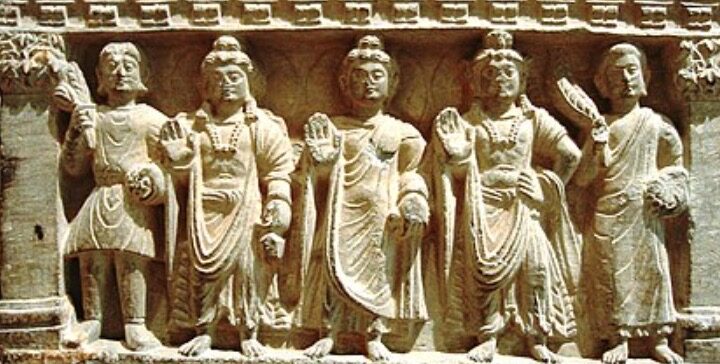SB52-Lankavatara Sutra

The Lankavatara Sutra is one of the six orthodox writings of the Yogacara school. Furthermore, it is the keystone of Chinese Ch’an and Japanese Zen Buddhism. It was brought by the Indian Bodhidharma to China at the end of the fifth century and reached Japan in the eight-century and Tibet in the ninth. The Sutra deals critically with the Brahmanist schools of the Indian philosophy like the Sankhya and the Pasupata and shows possible correspondences with the Mahayana. Furthermore, characteristic topics of the Yogachara doctrine are discussed such as the doctrine of the Tathagatagarbha and the eight types of consciousness. The essence of the sutra revolves around the term Cittamatra which characterizes the totality of the mental-spiritual as the basis for the manifoldness of all phenomena. Cittamatra can be translated as mind-only. All the objects of the world, and the names and forms of experience, are merely manifestations of the mind. The early Zen masters did focus on the Mahayana Lankatara Sutra which expounds the doctrine of “Mind-only” and stressed meditation. Chan or channa is a transliteration of the Sanskrit term dhyana, meaning meditation, while Zen is the Japanese transliteration of Chan.
The curriculum will include assignments, quizzes, supplemental materials, and group discussions. This interactive course is not available for those enrolled in the free membership program for AUDITING STUDENTS. It will only be part of the paid membership program.
Click on the “Curriculum” tab and you will find that this course is under development. If you have not registered for a membership and wish to join for other courses, please click on “Membership” on the top menu bar to select your membership and enroll in those courses. You are also required to complete the application form provided in course “G02-Spiritual Autobiography”” prior to being admitted to either the BUDDHIST STUDIES or the XIUXING SEMINARY PROGRAMS.
Click for detailed Users Guide under the “STUDENT MANUAL” in the website’s top menu bar for more information. Prior to viewing this course curriculum when it is available, you are required to listen to and complete “D35-128 Evil and Erroneous VIews.”
Several English translations of this sutra are available, but we will use Red Pine’s translation for this course.
